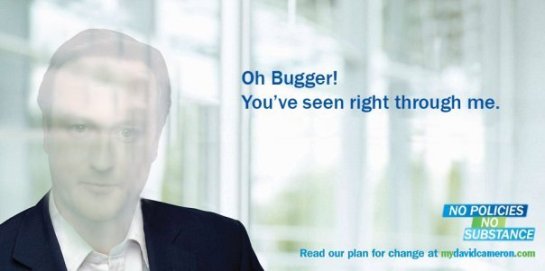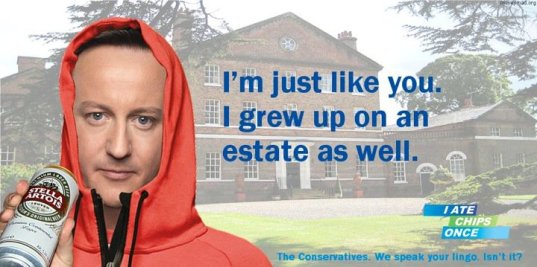 The Black Triangle Campaign was founded to support the human rights of disabled people and to oppose the Government’s “Work Capability Assessments”, which re-classify sick and disabled people as “fit for work”.
The Black Triangle Campaign was founded to support the human rights of disabled people and to oppose the Government’s “Work Capability Assessments”, which re-classify sick and disabled people as “fit for work”.
The hidden welfare state that the U.K. government dares not speak of
The UK has two welfare states. There is one that is reported and endlessly discussed, and another, which is rarely mentioned. Whilst the first is suffering enormous cuts under the Tory/LD coalition, the other just keeps expanding.
Governments on the left and the right can always justify welfare cuts by pitting, for example, mobility scooters against needle exchanges, or the soft-play area in children’s playgrounds against an old people’s home. Who deserves it most, they say, students or cleaners? Old or young? But when we’re running not one, but two welfare states, that’s a totally fake scenario. The real choice is between playgrounds or gas rigs; between Meals on Wheels or The City of London Currency Speculators’ Maintenance Allowance.
There’s a connection – never mentioned – between, let’s say, Britain’s eight new deep-water gas rigs and its new food banks. The connection is that the $4.5 billion subsidy package being doled out to transnational gas corporations is a very big slice of the welfare pie. And to keep the gas transnationals on the benefits to which they are addicted, hungry humans have to queue for tinned food that is too close to its sell-by date to be kept on the shelves of supermarkets, many of which are themselves massive recipients of corporate welfare.
Not only does the UK pay out unemployment benefits less generous than Romania, Albania and the US, but the wages of the employed have simply not kept pace with productivity over the last 30 yrs. Tory Ideology is all about Handouts to the Wealthy paid for by the Poor. George Osborne has cut £18bn from benefits plus a further £81bn from public services in the name of unavoidable austerity, whilst at the same time providing huge subsidies, tax cuts and removing regulation for the hidden ‘welfare’ system that benefits the private sector.
George Osborne has cut £18bn from benefits plus a further £81bn from public services in the name of unavoidable austerity, whilst at the same time providing huge subsidies, tax cuts and removing regulation for the hidden ‘welfare’ system that benefits the private sector.
No goods or services are directly returned to the government in exchange for these expenditures, although of course, politicians will argue that they’re stimulating the economy, helping struggling industries, creating jobs or funding important research but actually this is just a corporate welfare system.
The Cato Institute, for example, estimated that in the US, $93 billion were devoted to corporate welfare in 2002. This was about 5% of the federal budget, and nearly twice the amount spent on social welfare ie. feeding people, housing the homeless, raising children out of poverty etc.
There is no reason to think the situation is different in the UK. However, overall statistics for the UK corporate welfare budget are hard to discover, and the variety of different subsidies are staggering. Needless to say, the Tories focus their attention on fraud and waste in the social welfare budget.
Welfare fraud and waste is never far from the top of the UK’s news agenda – but the real figures often bear almost no resemblance to popular belief. The British public, for example, think around 27% of the welfare budget is lost of fraud, according to TUC research.
The Department for Work and Pensions’ latest data on fraud and error in the benefit system shows a very different reality: fraud exists, but at a far lower level than the public believes – and is outweighed by errors from claimants and officials alike. The DWP estimates £3.5bn has been overpaid due to errors and fraud in the system; 2.1 per cent of the overall benefit expenditure.
The corporate welfare budget arises from four main sources: Paying little or no tax – Tax havens; tax breaks; enjoying huge subsidies and the removal of employment and environmental protection regulations.
Tax Havens
The UK’s 100 biggest public companies are running more than 8,000 subsidiaries or joint ventures in onshore and offshore tax havens, according to research. The figures, published by the charity Action Aid, show that only two of the companies listed on the UK’s FTSE 100 have no subsidiaries in tax havens – while companies such as Barclays and Tesco own hundreds. http://www.guardian.co.uk. The UK Crown Dependencies and Overseas Territories constitute half of the world’s most frequently used tax havens.
Tax Breaks
Almost one in four of Britain’s biggest listed companies paid no corporation tax in this country last year – and almost half fail to disclose their tax payments to the UK at all, according to research by The Mail on Sunday. According to the annual reports and accounts of all the companies in the FTSE 100, 47 companies gave no obvious figures for tax paid in Britain. Of the 53 who did, 12 showed they paid no tax at all and, six actually received a tax credit. Tax Avoidance
Tax Avoidance
Treasury minister, David Gauke, admitted in reply to a parliamentary written question that only four employees of HMRC are working to capture 124 tax fugitives. The amount of uncollected tax rose again last year. A Labour MP pointed out that the four officials dedicated to the tax fugitives compares with the 450 HMRC staff involved in administering the withdrawal of child benefit from higher-rate taxpayers.
Subsidies
Currently, it is estimated that the government has already provided £43.5bn in various subsidies including the National Infrastructure Plan, the Equity Loan and Help to Buy schemes, the Enterprise Finance Guarantee and the Regional Growth Fund, with nothing to show for it. Far greater sums are in the pipeline, up to £310bn.
Meanwhile supermarkets get an enormous subsidy to help with one of their major overheads, staffing costs. This is because many employees in these large and successful companies are paid only the minimum wage. And because the current minimum wage is not a living wage, nearly everyone on it has to claim tax credits to be able to make ends meet. Those tax credits are funded by the taxpayer. The supermarkets are effectively state subsidised industries.
In addition to the recent unprecedented public support for the financial sector The NEF (New Economics Foundation) identified at least three significant hidden subsidies:
* The ‘Too Big to Fail’ subsidy: The government now provides a public guarantee, effectively insurance against banks going bust. This gives banks a huge commercial advantage over other firms in a market system. It means banks are able to borrow money much more cheaply than if they were not ultimately underwritten by the public. Exchanges with leading auditors in front of the House of Lords Select Committee on Economic Affairs in January 2011 confirm this. A conservative analysis reveals that this hidden subsidy could be worth £30 billion annually. It means that bonuses to senior staff for ‘performance’ and dividends to institutional investors are at least in part a straight transfer from the taxpayer.
* The quantitative easing windfall subsidy: When it was decided that the economy needed more liquidity, the Bank of England pumped money in using the technique called ‘quantitative easing’. To meet various, and sometimes self-imposed, requirements, it did by purchasing government bonds through investment banks. Merely for being passive conduits for this ‘risk free’ arrangement the banks took a cut of every trade. Here nef analysts found that banks enjoyed a significant windfall, but that lack of transparency keeps the likely amount hidden.
* The ‘make the customer pay’ subsidy: Since the baking crisis of 2008, the banks have been increased the gap between what they have to pay to borrow money, and what they charge people to borrow from them. This is the so-called interest rate ‘spread’. This is because they can borow money from the Bank of England at virtually 0%. As it is, the taxpayer is subsidising the banks twice over: once through taxpayer funded public support to the banks, and secondly through paying much higher interest to borrow than the banks do. This hidden subsidy amounts to at least another £2.5 billion each year.
 UK has ‘worst quality of life in Europe’
UK has ‘worst quality of life in Europe’





 Don’t Vote UKIP Don’t Vote Alexandra Swann: As UKIP Asks Should The Unemployed Be Allowed To Vote
Don’t Vote UKIP Don’t Vote Alexandra Swann: As UKIP Asks Should The Unemployed Be Allowed To Vote


 George Osborne has cut £18bn from benefits plus a further £81bn from public services in the name of unavoidable austerity, whilst at the same time providing huge subsidies, tax cuts and removing regulation for the hidden ‘welfare’ system that benefits the private sector.
George Osborne has cut £18bn from benefits plus a further £81bn from public services in the name of unavoidable austerity, whilst at the same time providing huge subsidies, tax cuts and removing regulation for the hidden ‘welfare’ system that benefits the private sector.



 Conservative Westminster council in Central London also wants to make it an offence to sleep rough – while slashing £5million of funding to hostels. Astonishingly, town hall chiefs claimed soup kitchens only “encourage” people to sleep on the streets.
Conservative Westminster council in Central London also wants to make it an offence to sleep rough – while slashing £5million of funding to hostels. Astonishingly, town hall chiefs claimed soup kitchens only “encourage” people to sleep on the streets.
 Focus On Benefit Cuts and Sanctions
Focus On Benefit Cuts and Sanctions





 The coalition government went on to make some of the biggest changes to the NHS since its creation.
The coalition government went on to make some of the biggest changes to the NHS since its creation. George Osborne rose VAT from 17.5% to a record 20%.
George Osborne rose VAT from 17.5% to a record 20%. The coalition government later abolished Child Benefit for higher earners.
The coalition government later abolished Child Benefit for higher earners. Hundreds of Sure Start centres have since closed their doors.
Hundreds of Sure Start centres have since closed their doors. Within weeks of the coalition government taking office it announced the abolition of the Future Jobs Fund.
Within weeks of the coalition government taking office it announced the abolition of the Future Jobs Fund.
 Since then we have witnessed some of the biggest cuts to welfare since the formation of the welfare state, which has led to a five-fold increase in poverty-stricken families turning to food banks.
Since then we have witnessed some of the biggest cuts to welfare since the formation of the welfare state, which has led to a five-fold increase in poverty-stricken families turning to food banks. The UK has been forced to endure some of harshest austerity measures in decades and those policies haven’t come from “further and further away”. They’ve come from David Cameron and his coalition government.
The UK has been forced to endure some of harshest austerity measures in decades and those policies haven’t come from “further and further away”. They’ve come from David Cameron and his coalition government. Sick and disabled benefit claimants are still being wrongly found ‘fit for work’ by inhumane benefit tests.
Sick and disabled benefit claimants are still being wrongly found ‘fit for work’ by inhumane benefit tests. Or hide jobseekers away on the government’s controversial Work Programme so that they can manipulate unemployment statistics perhaps?
Or hide jobseekers away on the government’s controversial Work Programme so that they can manipulate unemployment statistics perhaps? Tax cuts for Millionaires whilst some of the poorest in society are struggling to make ends-meet due to welfare cuts and poverty wages”.
Tax cuts for Millionaires whilst some of the poorest in society are struggling to make ends-meet due to welfare cuts and poverty wages”. Figures show that for the first time in history there are now more working people living in poverty than those in workless households.
Figures show that for the first time in history there are now more working people living in poverty than those in workless households.

You must be logged in to post a comment.